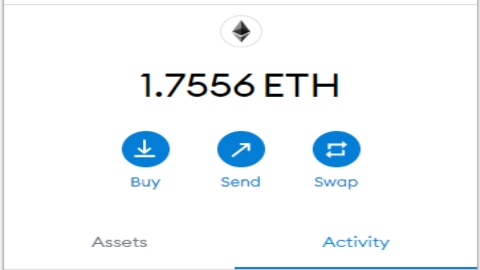More than 50% of the population of El Salvador say they do not agree with the Bitcoin Law, 49% say they have no knowledge about cryptocurrency and Moody’s gave the country a negative score for its political “deterioration”.
El Salvador is the first country in the world to take a giant leap towards adopting Bitcoin. The president of the nation, Nayik Bukele, reported in early June that the Legislative Assembly of El Salvador had given the green light to the Bitcoin Law, which will come into force on September 7. This law, which makes Bitcoin legal tender in El Salvador, caused a frenzy in the crypto community, although not so much in the country’s citizens.
Several reports show that a large part of the population of El Salvador does not even know what Bitcoin (BTC); even more its origin, its operation and its great economic benefits. The ignorance about the cryptocurrency It has led a large percentage of the population to point out that they do not want bitcoin within their financial system and to ensure that Bukele’s Law, which imposes the use of bitcoin in a “compulsory” manner, violates the constitution.
On the other hand, the future implementation of this law in the country has increased tensions with the world’s leading power, the United States. The International Monetary Fund (IMF) warned that the legal adoption of cryptocurrency could bring legal and economic problems to the nation and also hinder economic agreements between the Latin country and the organization that directs the international monetary system.
However, despite the pressure, Bukele continues to trust Bitcoin as the “money of the future”, which will allow 70% of the country’s population to access financial services efficiently. It should be remembered that El Salvador is one of the nations in the Americas with the lowest levels of bank penetration, with barely 30% of its adult population having access to the traditional banking system, according to data from the World Bank’s Global Index.
It may interest you: El Salvador encounters resistance to the Bitcoin Law but Bukele trusts the “new money of the 21st century”
Bitcoin and the economic system of El Salvador
Through Bitcoin, Bukele seeks to transform the financial reality of citizens, attracting investments to the country, increasing economic activity, promoting bitcoin mining with sustainable energy from volcanoes, and creating new jobs for the population in general.
Although the president of El Salvador has expressed his best intentions to stimulate the national economy, and has cleared many doubts regarding the implementation of the Bitcoin Law, a part of the population remains reluctant to accept cryptocurrency as legal tender.
Resistance to the Bitcoin Law
The television channel TeleSur reported recently that Salvadorans called a national strike on July 30 as a sign of their opposition to the Bitcoin Law, among other things.
Likewise, a survey applied at the beginning of July by the analysis unit disruptivebelonging to the Francisco Gavidia University of El Salvador, points out that 53.5% of Salvadorans do not consider Bukele’s decision to implement a Law to officially adopt cryptocurrency to be correct, while only 19.4% of citizens agree with the decision. In said survey, 46% of the population stated that they had no knowledge of Bitcoin, which raises concerns about the risks associated with the use and implementation of this cryptocurrency, such as volatility.
Opposition to the Bitcoin Act led Moody’s Investors Service, the research agency known simply as Moody’s, to qualify El Salvador with a negative score, arguing “deterioration” in the quality of its policy.
era of digital money
The declaration of Bitcoin as legal tender in El Salvador is a daring experiment and not recommended by some economists. However, the popularity and boom that bitcoin and the crypto market have had in recent years has been growing quite significantly, turning cryptocurrency into the new money of the Internet.
To ensure responsible adoption, Bukele has said that citizens will be able to exchange the bitcoins received for US dollars immediately; so that they can guarantee their value and reduce the risk of volatility, caused by fluctuations in bitcoin prices in the market. Also, the president is promoting the growth of the financial and digital infrastructure to guarantee the population access to cryptocurrency anywhere.
The president of El Salvador is creating a new digital wallet, called Chivo, from which citizens will be able to receive, send, manage and store bitcoins even if they do not have an internet connection or mobile data. Likewise, Bukele is signing an agreement with Athena Bitcoin to install nearly 1,500 bitcoin ATMs throughout the country, so that citizens have easy access to cryptocurrency.
The exploration of bitcoin mining with geothermal energy is also a project under development to encourage investment, attract capital and generate new local jobs.
El Zonte, pioneer in Bitcoin
Until now, El Zonte is the population of El Salvador that has pioneered the use of cryptocurrency, already accepting bitcoins as a means of payment for a couple of years. In fact, Bukele has mentioned this town several times as his “inspiration” to create the Bitcoin Law. The El Zonte community affirms that it found in Bitcoin an opportunity of value accessible to all.
The development of the cryptocurrency industry is beginning to transform financial systems through its multiple benefits, allowing faster and cheaper transactions, providing more transparency in operations, promoting greater financial inclusion and increasing trade flows, for mention some benefits.
Continue reading: Chivo, the Bitcoin wallet from El Salvador that will donate $30 dollars to each user
